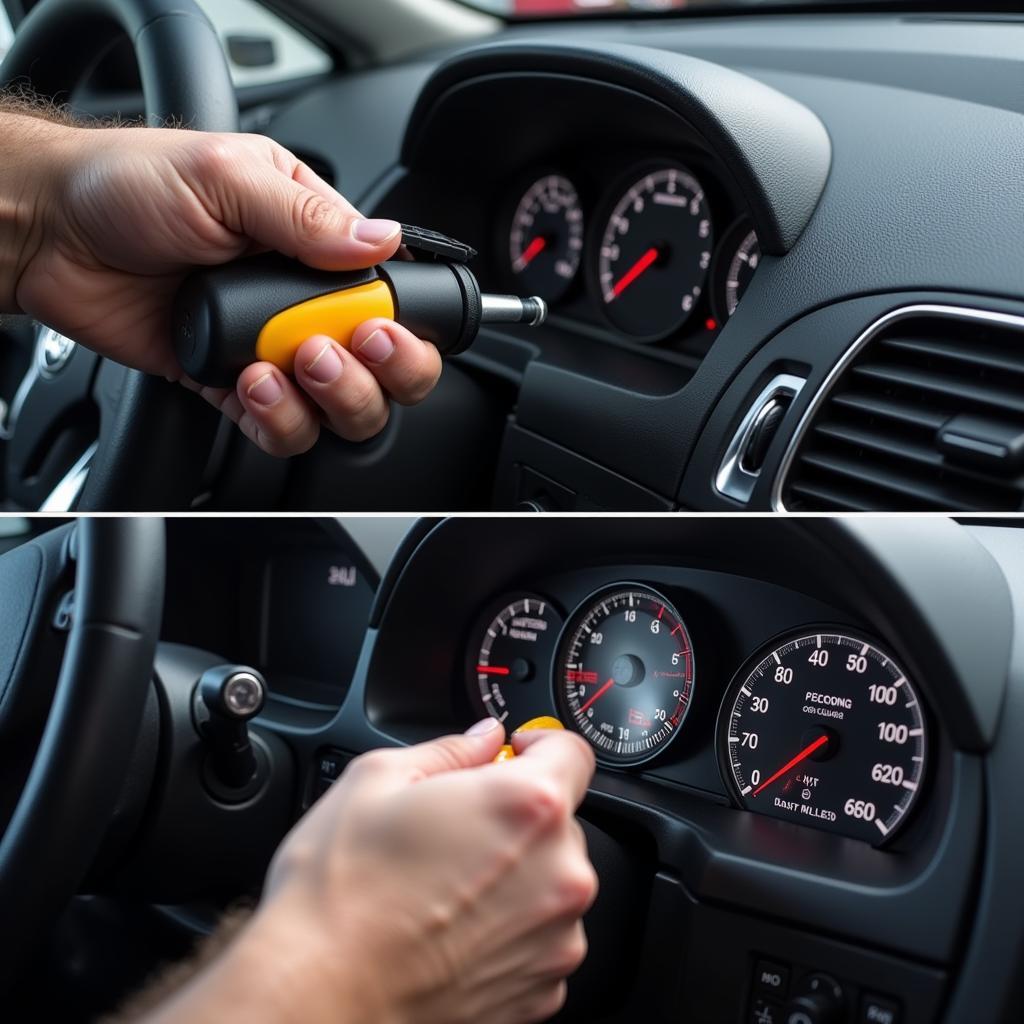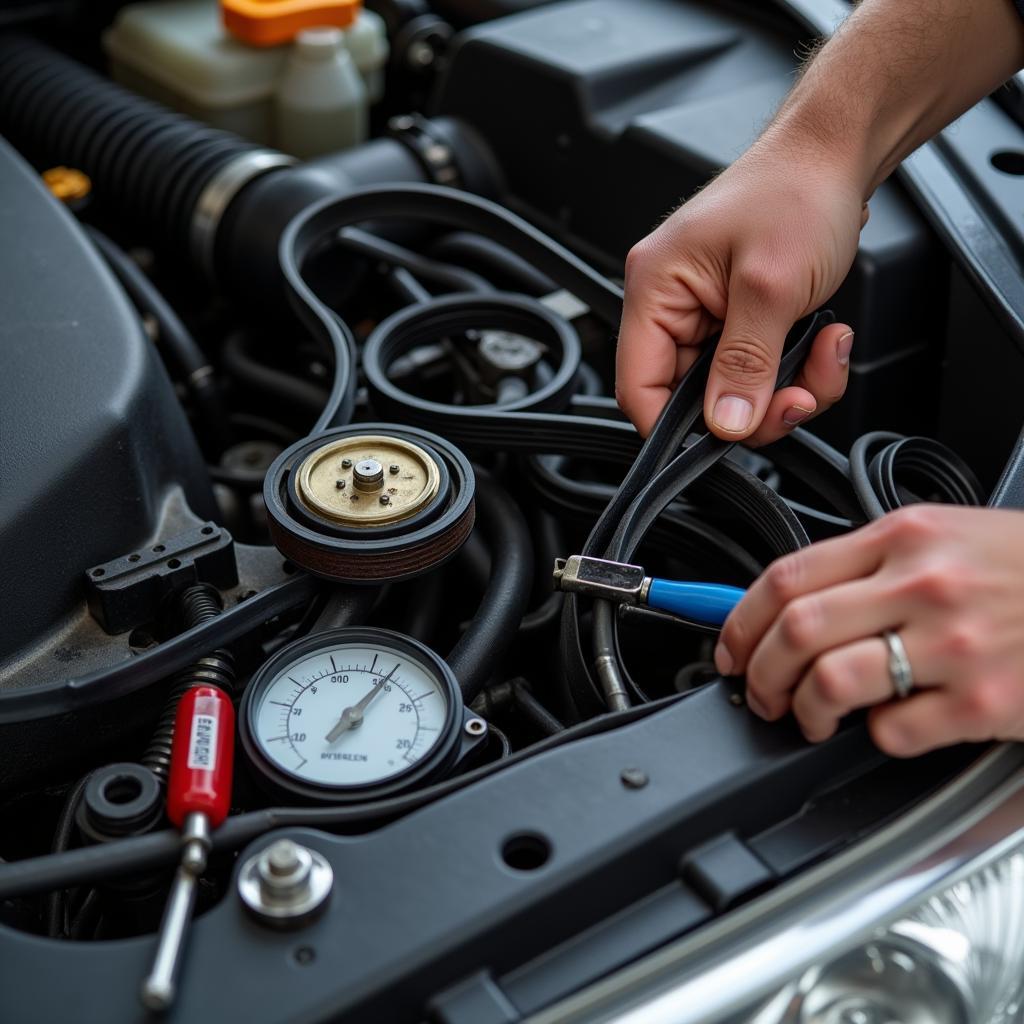Keeping your vehicle running smoothly at 120,000 miles requires a proactive approach to maintenance. This article dives deep into the essential 120k Car Maintenance tasks to ensure your car remains reliable and performs optimally for years to come. Whether you’re a seasoned mechanic or a car owner looking to understand what’s involved, this guide provides valuable insights and practical advice for navigating the 120,000-mile mark.
Essential 120k Car Maintenance Checks
Reaching 120,000 miles is a significant milestone for any vehicle. It’s a testament to the car’s durability and your commitment to its upkeep. However, parts naturally wear down over time, requiring more attention at this stage. Neglecting key maintenance can lead to costly repairs down the road, so understanding what needs attention is crucial for preserving your car’s longevity.
Fluids: The Lifeblood of Your 120k Mile Car
At 120,000 miles, several fluids are due for a change or inspection. This includes your engine oil, transmission fluid, brake fluid, coolant, and power steering fluid. Regular fluid changes ensure these vital systems continue to function efficiently and prevent premature wear.
- Engine Oil: Consider switching to a high-mileage oil formulated to address the specific needs of older engines.
- Transmission Fluid: If your car has an automatic transmission, changing the fluid can prevent costly transmission problems.
- Brake Fluid: Brake fluid absorbs moisture over time, reducing its effectiveness. Flushing the brake fluid ensures optimal braking performance.
- Coolant: A coolant flush removes rust and debris, protecting your engine from overheating.
 Checking Car Fluids at 120,000 Miles
Checking Car Fluids at 120,000 Miles
Belts and Hoses: Preventing Breakdowns at 120k Miles
Inspecting and replacing worn belts and hoses is essential 120k car maintenance. These components are prone to cracking and drying out with age, and a failure can lead to significant engine damage.
- Timing Belt: Replacing the timing belt is a crucial preventative maintenance task, often recommended around the 100,000-120,000 mile mark, depending on the manufacturer’s recommendations. A broken timing belt can cause catastrophic engine damage.
- Serpentine Belt: The serpentine belt powers various accessories, such as the alternator and power steering pump. Replacing a worn serpentine belt can prevent unexpected breakdowns.
 Inspecting Belts and Hoses at 120,000 Miles
Inspecting Belts and Hoses at 120,000 Miles
Spark Plugs and Ignition System: Maintaining Performance at 120,000 Miles
Spark plugs are responsible for igniting the air-fuel mixture in your engine. Worn spark plugs can lead to reduced fuel efficiency, rough idling, and decreased performance. Replacing them at 120,000 miles can restore engine performance and improve fuel economy. Also, inspect the ignition coils and wires for any signs of wear or damage.
“At 120,000 miles, your car has seen its fair share of road trips. Proactive maintenance ensures it’s ready for many more,” says automotive expert, David Miller, ASE Certified Master Technician.
Suspension and Steering: Ensuring a Smooth Ride at 120,000 Miles
Your car’s suspension system takes a beating over time, especially on rough roads. At 120,000 miles, inspect the shocks, struts, and other suspension components for wear and tear. Addressing suspension issues improves ride comfort and handling, ensuring a safer driving experience.
“Don’t wait for a problem to arise. Regular inspections are key to catching potential issues early on,” adds Sarah Johnson, Lead Mechanic at Johnson Automotive.
What Should Be Done at 120k Miles?
In short, 120k car maintenance includes checking fluids, belts, hoses, spark plugs, the ignition system, suspension, and steering. Addressing these areas ensures your vehicle remains reliable and performs at its best.
Conclusion: Keeping Your Car on the Road at 120,000 Miles and Beyond
120k car maintenance is a crucial investment in your vehicle’s longevity. By following the guidelines outlined in this article, you can address potential issues before they become major problems. Remember, preventative maintenance is always more cost-effective than major repairs. Need help? Connect with AutoTipPro for expert advice and assistance. Call us at +1 (641) 206-8880 or visit our office at 500 N St Mary’s St, San Antonio, TX 78205, United States.
“Investing in proper maintenance is like investing in your peace of mind,” concludes Michael Rodriguez, Automotive Engineer.





Leave a Reply